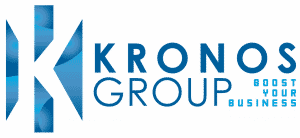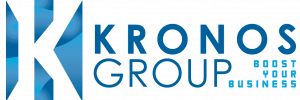How procurement process automation empowers your broader procurement function

Summary
Automation of the procurement process has caused waves in the business landscape, rapidly changing the state of many industries. One of the major reasons for this shift is the sheer scope of improvement it provides for an organisation’s overall procurement function. When analysing how procurement process automation improves the overall procurement process, some key areas can be identified. This includes improving efficiency in workflows, enhancing data visibility, optimising costs and resource allocation, and easing supplier relationship management. However, implementing procurement automation can be quite complex, procurement consulting services can be utilised to ease the process.
Did you know that 82% of companies that are highly digitalised create significantly more value in terms of more control, efficiency, and sustainability thanks to the procurement data they have? Procurement process automation is the future of growth.
Today’s business landscape is evolving fast, and procurement has evolved to adapt in response to the changes, in large part thanks to the contributions of procurement automation. So, what exactly does this entail?
Procurement automation involves integrating digital technologies and tools within the procurement function to streamline operations and increase efficiency.
The effectiveness of this process cannot be overstated in today’s business environment. It contributes to highly efficient and effective procurement operations that rely on less human involvement for repetitive tasks that have low value-additions. It also facilitates more precise and accurate data across the broad, contributing to better decisions.
Strides in automation of the procurement process have enabled the digitalisation of operations like purchase order creation, invoice processing, and vendor management—significantly improving precision, consistency, and efficiency.
Here is how these developments empower the broader procurement function of a business.
How procurement process automation improves the overall procurement process
Automating procurement processes can empower the overall procurement function in multiple ways with some of the most impactful of them being; improving efficiency in workflows, enhancing data visibility, optimising costs and resource allocation and easing the process of supplier relationship management.
Let’s take an in-depth look at how these improvements affect the broader procurement function.
Improving efficiency in workflows
As procurement automation can be implemented across the entire procurement process, it enhances the efficiency of multiple workflows. Here are some of the major workflows that it improves;
- Vendor selection and management
Procurement automation tools can be used to streamline the process of collecting and analysing supplier data along with supplier performance evaluations. These tools can also track supplier metrics and performance indicators, making it easier to identify and address issues in time.
- Purchase order generation
Automated procurement systems can generate purchase orders based on predefined criteria, cutting down on manual labour and significantly improving efficiency. It also helps eliminate data entry errors and inconsistencies that can cause complications down the line.
- Invoice generation
Invoice generation is usually a labour-intensive and time-consuming process that can be significantly improved in terms of time and cost savings through automation. Since invoices can be electronically received and cross-referenced with POs and receipts, the process is faster and errors are minimal.
Enhancing data visibility
Since automation is facilitated through digital systems and technologies, the tools implemented allow for higher data transparency and informed decision-making as a result of analytics and reporting.
- Real-time data visibility
With procurement automation tools in place, organisations can gain real-time access to data such as POs, supplier performance, and inventory levels. The access to critical data in real-time allows procurement professionals to adapt to changing conditions promptly and address disruptions in the supply chain appropriately.
- Analytics and reporting
A vast amount of data can be collected and analysed through digital systems to extract valuable insights that can inform decision-making processes. Features like dashboards present in procurement automation tools allow procurement teams to visualise this data and identify patterns and trends easily.
Optimising costs and resource allocation
One of the biggest reasons that businesses are implementing procurement process automation initiatives is the sheer amount of costs it saves. It also contributes to better resource allocation as a result of the data it offers.
- Reduction in human error
As procurement automation eliminates the need for manual data entry, calculations, and paperwork in general, the likelihood of errors occurring is significantly reduced. This can save costs from human error which can lead to costly complications.
- Minimisation of maverick spending
Maverick spending, which occurs when employees make purchases outside of the pre-approved procurement process, can lead to higher costs and issues with supplier negotiations. Automated systems can ensure that policies are in place and enforced to prevent maverick spending and keep spending in check.
Easing supplier relationship management
Implementing automated procurement systems can significantly improve the supplier relationship management function by improving communications, strengthening long-term supplier relationships, and allowing for better negotiation of terms.
- Automated communications
Automated supplier communication features like order confirmations, delivery schedules, and invoice status updates ease the process of communicating by improving transparency, reducing misunderstandings, and enhancing overall collaboration with suppliers.
- Performance monitoring
Automated systems allow businesses to assign KPIs to suppliers and track them in real time, dramatically improving the process of supplier performance monitoring and evaluation. This also helps internal teams to identify issues early and take corrective actions promptly.
- Streamlined collaboration
Automated procurement systems provide a centralised platform for information sharing and collaboration with suppliers. This allows both parties to access data conveniently, ensuring the suppliers can meet the organisation’s requirements and ensuring that the organisation is aware of the supplier’s status.
Empower your procurement function across the board with procurement process automation
Automating your procurement process is one of the most effective ways of improving efficiency in workflows, enhancing data visibility, optimising costs and resource allocation, and easing the process of supplier relationship management.
However, implementing these initiatives is no easy task. This is where procurement consulting services can be highly beneficial for businesses. Procurement consultants can help your business implement practices that cater to the particular needs of your business, empowering the procurement function with top-of-the-line technology.




